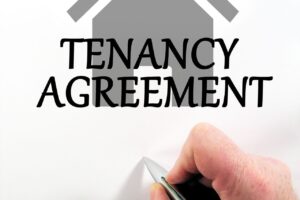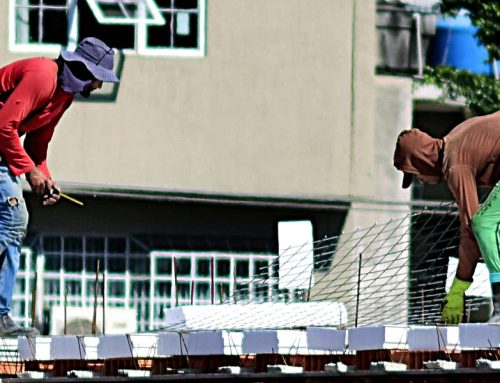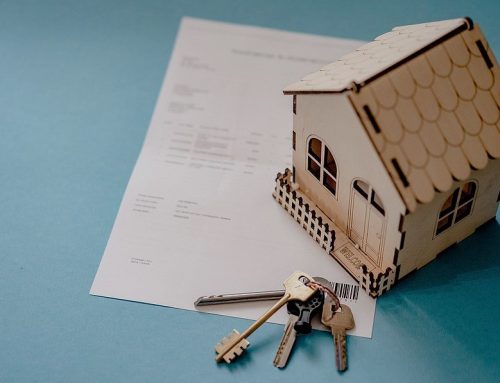Over the past decade or so, investors who have stuck with their investments in real estate or the stock market have done exceptionally well, despite some roller coaster swoop-downs. Of course, that’s compared to the Great Recession that preceded that, when both markets had fallen precipitously.
Even with some breaks and the pandemic uncertainty, prices have generally risen quite well across that entire spectrum. Rents also have been increasing as housing costs rise and more renters are pushing demand higher. Those investors who bought or held rental properties these past years have done very well.
If you’ve never owned a rental before, you may be wondering if you have missed out on a great way to build wealth, and it is. I’ve had more than a half-dozen rental properties and discovered that while it’s a solid path to financial security, it’s not all butterflies and rainbows. There are considerable factors like risk, liquidity, and maintenance headaches to consider. Even with those, though, I think the biggest mistakes I’ve made have been selling rental properties.
Here are the advantages and disadvantages of buying and owning rental properties (consider this education not professional advice; consult your legal or tax specialists for that):
Advantages of buying and owning rental properties
Rental income

With rents high and on the rise due to fewer homes being built, a rental property can drive regular, mostly steady income. It has been a proven strategy, particularly in creating retirement income as the rental income will go up but the cost of the asset will not. That’s been my experience as a real estate investor and many others’
Home appreciation
While there is no guarantee, housing has been a safe and appreciating asset for most of our lives (minus the housing crash, of course). So not only will you be getting income during the time you hold it, but it’s likely to be worth much more when you sell it (if you sell it). You can get income out of a bond also, but it’s not likely to appreciate as much.
A House is a tangible asset
A house is something you can see and touch, and it always will be. You can make it more valuable by adding a feature or improving it otherwise, which isn’t a feature of a stock. A stock market investment these days is an electronic number on your laptop until you cash it out. That matters to some.
Tax benefits of home ownership

Deductions, deductions, deductions. In a rental property, possible deductions include:
Mortgage interest
Like your owner-occupied home, you can deduct the costs of mortgage interest from your taxes. This doesn’t help you much, obviously, if you pay cash.
Taxes
Your property taxes on the rental generally are deductible, with some limits in some places.
Capital gains
When you sell the property, if you have owned it the required period, you would pay capital gains tax on it rather than regular income tax, which could save you considerable money.
Maintenance and repair costs
Whatever you pay trades people to fix or maintain on the property is deductible. That also includes services like lawn care and pool maintenance.
Insurance and warranties
The homeowner’s insurance is deductible in full, as is any warranty policy you get for the rental. (Note: That insurance generally doesn’t cover the tenants and their belongings; they should get one of those on their own and you should recommend that in the contract.)
Depreciation
This is a big one, but it will cost you if and when you sell the property. Your tax preparer can depreciate the value of the improvements (not the land, which doesn’t change) over generally what is assumed to be their useful life, often 30 years for the structure. Major improvements, like a new roof or HVAC, also can be depreciated according to their useful life.
HOA
The costs incurred by a homeowners association are generally considered business expenses and can be deductible. That may not include all transactions with an HOA.
Home office

Not everyone can do this, and the rules are narrow, but having a rental property is a business, so if you use a room in your home as an office solely for that business, that can be a deduction.
Utilities
If you pay utilities like water or trash for the tenant, that’s generally deductible.
Family legacy

If you set it up right, after you die, you can pass on ownership of the property to your heirs with a step up in basis, which means they may not have to pay taxes on the appreciation of the property before they owned it. Among the financial advantages, this also can save the family home for subsequent generations.
Building a Rental Empire
I bought my first house using the GI Bill. Five years later I bought a fixer-upper with mostly cosmetic problems (carpet, paint, yard). After fixing it, I rented it out and bought another house (using the two rental incomes as fodder for the next loan). After a couple of those, I didn’t need to live in the next property to be able to afford it. With these properties, renters either pay down your mortgage(s) or you build a pot of money for the next investment. It can be an accelerating flywheel of a small business.
1031 Exchanges
After you’ve had the property for many years and the depreciation tax benefit has waned, you are allowed under the tax code (1031) to sell it and buy a similar property, as long as very strict guidelines are met (do NOT attempt this without a 1031 specialist as the requirements are multiple and the penalties for getting it wrong can be severe). This could allow you to use the equity in the rental to procure and even more valuable property, and also start the depreciation clock anew.
Disadvantages of buying and owning rental properties
As you likely know very well, a house is an expensive investment that requires considerable wherewithal to acquire. You may have heard stories about buying property with nothing down and with other people’s money, but that’s not the normal path, and much of that is snake oil. If you don’t have the hundreds of thousands of dollars needed to pay cash, you’ll still need a hefty down payment plus sufficient reserves for operating costs and vacancy time, plus any improvements needed before (and after) renting it out. This is entirely doable for middle America with the right approach and discipline (I was a mid-level newspaper editor when I started), but it does take initial resources.
Ugh! Renters can be like teenage sons

Some renters are wonderful guests in your home and live there for years before returning it to you with no more damage than normal wear and tear. Others – yikes! I’ve seen and experienced total slobs who can trash the place and not care about the damage — or people who don’t pay on time and require constant badgering to get them to fulfill the agreement. And if they don’t, you have to go through an eviction process that’s legal and can be time-consuming. It’s just part of the landscape.
Finding tenants

I once had a rental property in a great school district, and I could rent it out by putting a Home Depot “For Rent” sign in the front yard. That’s not the norm. Usually you have to advertise, vet the candidates, make sure your contract is complete and enforceable, and handle all the payments and refunds. There are good services that vet potential renters fairly inexpensively, but one month with an empty house can kill the year’s profit. A property manager will do that for a fee.
Maintenance and repairs

Part of your responsibility is to make sure the home is safe, up to code and livable. That can mean inconvenient phone calls and unexpected expenses (see “teenage sons,” above). If you’re a DIY guy and enjoy that, jolly for you; it’s going to be easier. My advice – and what I eventually did — is pay a property manager, who will find and check out renters, deal with headaches, and make your life much less stressed for 7-10% of the rent, plus some finder’s fees.
Market risk
Yes, houses mostly go up in value, although historically not as much as stocks (they do have those other financial pluses). Sometimes, though, they don’t, or the neighborhood declines, or a power plant is built close by. We saw what could happen in the Great Recession. Real estate tends to be a safe investment but it’s not invulnerable to market risk.
Opportunity cost
It could be that what you would do with the money and time invested in rental properties might serve you better than being a landlord. Many people have dropped their investment cash into a broad market fund and just let it ride, and they wound up with a nice retirement nest egg. (Remember, past performance is not indicative of future results in either market.) If the financial strain means you have to live a miserable existence, perhaps this isn’t for you.
Houses are not liquid investments
You can sell a stock or mutual fund within minutes generally while houses can take months and have relatively high transaction costs. If you need the money safe and soon, being a landlord might not be the best investment . . . right now.
Conclusion: Are Rental Properties for You?
The home rental business is NOT for everyone, and it has risks, work, and headaches involved. If you accept that from the beginning and understand what you’re getting into, it can be an excellent way to build wealth for your retirement or legacy (but certainly not the only way).
Hal DeKeyser
Note: None of the above should be considered professional advice and readers should seek their own professional advice as the author is not a legal or financial expert … and rules change that *might not be reflected here.
AI was use for research but not writing this article.

Contact Form









